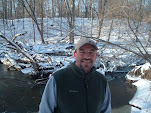and walks outdoors, and keeps on walking,
because of a church that stands somewhere in the East.
And his children say blessings on him as if he were dead.
And another man, who remains inside his own house,
dies there, inside the dishes and in the glasses,
so that his children have to go far out into the world
toward that same church, which he forgot.
Verse by Rainer Maria Rilke, translated by Robert Bly
The powerful verse from Rilke illustrates a profound quandary that all of us face in our lives regarding changes. The words speak less of an actual physical leaving, but more of the spiritual leaving that takes place in our hearts and how it affects the ones surrounding the “victim” of this spiritual encounter. I see this leaving in others as well as feeling it in myself. Fearful am I at times when I recognize them--worrying about the possible outcomes of the journey.
I have seen my children, my wife, my job, my marriage, my belief system, all travel the road to the “Church that stands somewhere in the east” at some point in time. I have not lost those things, they only traveled a measured path that needed to be ventured along. Loves bonds still held—sometimes stretched—but still fondly attached.
I have also experienced the death inside my own house. I have smelled the rotting sense of deathlike loss and doubt. Fear has stalked and lurked around me with challenging fierceness. I feel my children looking for what I failed to give them as a father. What I was incapable of giving to them at times. I never failed to love, but I failed to care enough at times to forgive myself the failures that I suffered.
Personally, I seek the “church”, die far from the “church” and bear witness to the journeys of others to the “church.” And I will forget and be forgotten as well.
 From Wikipedia: Rainer Maria Rilke (4 December 1875 – 29 December 1926) was a Bohemian–Austrian poet and art critic. He is considered one of the most significant poets in the German language. His haunting images focus on the difficulty of communion with the ineffable in an age of disbelief, solitude, and profound anxiety: themes that tend to position him as a transitional figure between the traditional and the modernist poets.
From Wikipedia: Rainer Maria Rilke (4 December 1875 – 29 December 1926) was a Bohemian–Austrian poet and art critic. He is considered one of the most significant poets in the German language. His haunting images focus on the difficulty of communion with the ineffable in an age of disbelief, solitude, and profound anxiety: themes that tend to position him as a transitional figure between the traditional and the modernist poets.




2 comments:
For some reason I cant relate with this post,it is way toooo deep for me and it scares me. I guess it is because I dont understand this type of writing. I have read and reread it several times and I still dont "get it"
MOM
We don't always see the reasons that people do the things they do. They alone feel why they do them and often they do not understand the forces that are at work. That is why we are left to ponder the what-ifs and the whys that make up the many moments of this journey we call life. Ask yourself, "did I always understand why I did the things I did?" I sure can't answer that with even a maybe.
Post a Comment